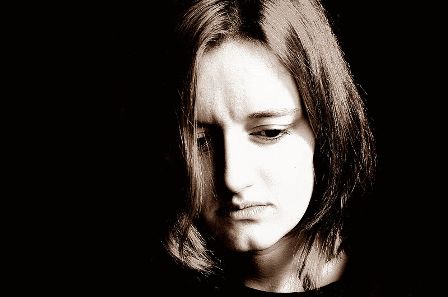well…what?: debunking the myths surrounding depression

When public figures like Ian Thorpe, Demi Lovato, and Catherine Zeta-Jones speak out about their struggles with depression and depressive disorders, it can be discouraging to find so many myths and misunderstandings about this illness still perpetrated in our society. Depression and other depressive disorders occur in 1 in 5 women and 1 in 8 men, making it likely that you know someone with this illness. It can be difficult to cope with at times, but it is manageable.
There is a range of depressive disorders. Some symptoms overlap, but each disorder needs to be treated differently.
Major depression, clinical depression, unipolar depression or most often simply called depression, presents through physical symptoms, behaviours, thoughts, and feelings. Physical symptoms of depression include changes in appetite, either eating more or less, substantial weight gain or loss, lethargy, and over-sleeping or trouble sleeping. Other physical symptoms include headaches, muscles pains, an upset stomach, and being run down and sick. Symptomatic behaviours include an inability or difficulty to concentrate, becoming withdrawn from friends and family, stopping usual activities, especially enjoyable ones, inability to complete tasks at work and school, and a dependence on alcohol and other sedatives. Feelings can include guilt, indecision, sadness, irritability, and disappointment. Someone with depression might feel overwhelmed, numb, or empty. They may have thoughts about their perceived worthlessness, and the hopelessness of their situation, and may contemplate suicide or self-harm.
Some forms of depression can be described as melancholic or psychotic. These are severe forms of depression that present slightly differently from clinical depression. Patients diagnosed as melancholic present with all or most of the physical symptoms of clinical depression and tend to move very slowly. They tend to find little to no pleasure in most, if not all, activities in their lives. Psychotic depression is the term used for those people with depressive disorders who suffer psychosis. They may hallucinate or believe delusions, and they may also become paranoid.
Women who have children are at risk of pre- and postnatal depression. Different to the “baby blues”, a sadness many women feel as their hormones adjust in the days after giving birth, postnatal depression can occur in the year after childbirth, and up to 16% of women experience this in the first three months after childbirth. Prenatal or antenatal depression can occur while pregnant, and almost 10% of women experience this.
Bipolar disorder is characterised by extreme mood swings between feeling manic and over excited, and depressive and hopeless, usually along with periods of feeling “normal”. The highs, known as mania, are like depression in that the symptoms will vary slightly from person to person. A person going through a period of mania may behave recklessly, be overly energetic and not need much sleep, be irritable, frustrated, and impatient, have racing thoughts, talk quickly, and feel great. They may also experience psychosis. A person with bipolar disorder may not feel an even amount of highs and lows, with some people reporting more of one than the other. In the past, bipolar disorder has been called manic depression, and is often still called manic-depressive disorder.
If you think you have a depressive disorder, a consultation with your health professional is the best way forward. Often a combination of therapy and antidepressants are prescribed once a patient is diagnosed, but this doesn’t work for everyone. Find the treatment that’s best for you.
If you can, keep your body as healthy as possible through exercise, diet, and relaxation. Keep your relationships with your friends and family going, and find the support you need through your illness. It may not be visible to most people, but mental illness is just as serious and can be just as debilitating without help and treatment as physical illness.
If you know someone who is experiencing symptoms of depression, especially if they seem suicidal, you should encourage them to seek help, or you can try to get help for them. You could attempt to arrange for close and trusted friends and family to show their support.
If you need to talk to someone:
Beyond Blue
http://www.beyondblue.org.au/
24 Hour Phone: 1300 22 4636
Web Chat (3pm – 12am AEST)
http://www.beyondblue.org.au/get-support/get-immediate-support
LifeLine Australia
13 11 14
HeadSpace
http://www.headspace.org.au/
For more information:
Always speak to your local medical professional.
Note: The information contained in this article does not constitute medical advice and is not intended to replace a one-on-one relationship with a qualified health professional.

